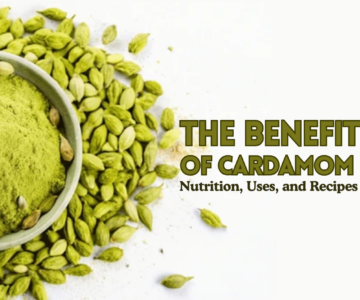 Healthy and Delicious: Quick Recipes for Busy Weeknightsby admin / December 13, 2023
Healthy and Delicious: Quick Recipes for Busy Weeknightsby admin / December 13, 2023Myth vs Fact: Long-Term Side Effects of COVID Vaccines
The COVID-19 pandemic has brought with it an unprecedented rush to develop and distribute vaccines to combat the virus. Vaccination campaigns have been a beacon of hope, offering the promise of a return to normalcy. However, along with the remarkable scientific achievements in vaccine development, a slew of myths and concerns about long-term side effects have emerged. In this article, we aim to separate fact from fiction and address the myths surrounding the long-term effects of COVID-19 vaccines.
Myth 1: COVID-19 Vaccines Alter DNA
Fact: COVID-19 vaccines, such as those based on mRNA technology, do not alter your DNA. These vaccines work by instructing cells to produce a harmless spike protein found on the virus’s surface. Your immune system recognizes this protein and builds defenses against it. Once the protein is made, your body breaks down the instructions (mRNA), leaving no lasting impact on your DNA.
Myth 2: Vaccines Contain Microchips for Tracking
Fact: COVID-19 vaccines do not contain microchips or tracking devices. This conspiracy theory has been widely debunked. The vaccines contain only the necessary components to stimulate an immune response against the virus.
Myth 3: Long-Term Side Effects Are Unknown
Fact: While it is true that the vaccines underwent accelerated development and received emergency use authorization, rigorous safety protocols were followed. Clinical trials involved tens of thousands of participants, and the vaccines continue to be monitored for adverse effects. Long-term side effects of vaccines are extremely rare and typically occur within the first few weeks of vaccination.
Myth 4: Vaccines Cause Fertility Issues
Fact: There is no scientific evidence to support the claim that COVID-19 vaccines impact fertility. In fact, the vaccines have been recommended for pregnant individuals to protect both the mother and the developing fetus from COVID-19.
Myth 5: Vaccines Weaken the Immune System
Fact: COVID-19 vaccines boost the immune system’s ability to recognize and fight the virus. They do not weaken immunity. On the contrary, they help the body develop a strong defense against COVID-19, reducing the risk of severe illness.
Read Also: https://lyfeplace.com/can-fitness-trackers-cause-cancer/
Myth 6: Ingredients in Vaccines Are Harmful
Fact: COVID-19 vaccines are composed of specific ingredients necessary for their effectiveness. These ingredients have been extensively studied and have been used in vaccines for decades. They are carefully regulated for safety.
Myth 7: The Vaccine Is More Dangerous Than the Virus
Fact: COVID-19 vaccines have undergone rigorous testing to ensure their safety and efficacy. The virus itself poses a far greater risk, especially in terms of severe illness, hospitalization, and death. Vaccination significantly reduces these risks.
Myth 8: Vaccinated People Can Still Spread the Virus
Fact: While breakthrough infections (infections in vaccinated individuals) are possible, vaccinated individuals are less likely to transmit the virus compared to unvaccinated individuals. Vaccines reduce the severity of the disease, making it less likely for vaccinated individuals to spread the virus unknowingly.
Myth 9: Booster Shots Are Unnecessary
Fact: Emerging data and real-world evidence suggest that booster shots may be needed to maintain the vaccine’s effectiveness, especially as new variants of the virus emerge. Booster shots are part of ongoing efforts to ensure long-lasting immunity.
Myth 10: Natural Immunity Is Better Than Vaccination
Fact: While recovering from a COVID-19 infection does provide some level of immunity, vaccines offer more consistent and predictable protection. Vaccination is recommended even for individuals who have had COVID-19 because it boosts and enhances immunity.
Conclusion:
It’s essential to rely on accurate information and scientific evidence when evaluating the safety and long-term effects of COVID-19 vaccines. Misinformation can hinder vaccination efforts and put public health at risk. The benefits of vaccination in preventing severe illness, hospitalization, and the spread of the virus far outweigh the rare and minimal risks associated with these vaccines. Consult with healthcare professionals and trusted sources for reliable information about COVID-19 vaccines. The more people who get vaccinated, the closer we come to ending the pandemic and returning to normalcy.
FAQ:
Does the COVID Vaccine Have Long-Term Effects?
Long-term side effects of the COVID-19 vaccine are very rare. The only reported side effects of the vaccine are pain and soreness at the injection site in your body. Some people may also experience a slight fever.
How Long Do COVID Vaccine Side Effects Last?
Commonly, the side effects of COVID-19 vaccines occur on the day of vaccination or will be resolved within 2 to 3 days.
What to Do After the Vaccine to Reduce Side Effects?
To reduce side effects after vaccination, use a cold pack to reduce redness or swelling at the injection site. You can also take an over-the-counter pain reliever unless you have any specific contraindication.
Medical Disclaimer: This article is for informational purposes only and does not constitute medical advice. Always consult with a healthcare professional for medical guidance and information about COVID-19 vaccines specific to your individual health condition.



